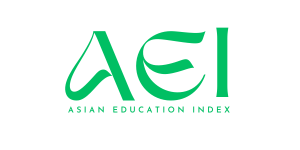Regulating Current Strength Using A Rheostat In The Conditions Of Digitalization
DOI:
https://doi.org/10.62480/jpip.2025.vol42.pp14-19Keywords:
digitalization of education, digital virtual laboratoryAbstract
Today, the issue of improving the digital literacy of the population is being actively raised. This primarily concerns pupils, who have the highest demand for the use of digital technologies and internet capabilities in learning and everyday life. Pupils who develop digital literacy as an integral part of their education are more effective in their studies and are more in demand when it comes to employment.
References
Antonova N.A. ПРАКТИЧЕСКИЕ РАБОТЫ ПО ФИЗИКЕ В УСЛОВИЯХ
ЦИФРОВИЗАЦИИ [Practical works in physics in the conditions of digitalization].
Профессиональное образование в России и за рубежом. 1 (45) 2022, pp. 34–40. (In
Russian).
Boronenko T.A., Kaisina A.V., Fedotova V. S. Razvitie czifrovoj gramotnosti shkol’nikov
v usloviyakh sozdaniya czifrovoj obrazovatel’noj sredy’ [Development of digital literacy
of schoolchildren in the creation of digital educational environment]. Perspectives of
Science and Education,2019, no. 2 (38), pp. 167–193. DOI: 10.32744/pse.2019.2.14. (In
Russian).
Gigolov A.I., Povalyaev O.A. Vozmozhnosti oczenki e’ksperimental’ny’kh umenij po fizike
s ispol’zovaniem czifrovy’kh tekhnologij [Opportunities for assessing experimental skills
in physics using digital technology]. Pedagogical Measurements, 2020, no. 2, pp. 102–
(In Russian).
Grigoriev A.S. Dopolnennaya real’nost’ [Augmented reality]. Actual problems of
development of secondary and higher education: interuniversity collection of scientific
works. Vol. XVI.Chelyabinsk, 2020, pp. 127–133. (In Russian).
Lebedeva T.N., Schaefer O.R., Nosova L.S., Ruzakov A.A. Pedagogicheskie aspekty’
formirovaniya professional’noj kompetenczii budushhikh pedagogov v usloviyakh SMARTobshhestva [Pedagogical aspects of forming professional competence of future teachers in
the conditions of SMART-society]. Chelyabinsk, 2020, 351 p. (In Russian).
Suyarov K. Fizika. 7 klass [Physics. 8 grade]. Tashkent, 2022, 271 p. (In Uzbek).
Kaypnazarov S.G. Organization of laboratory exercises on the electricity section in the
context of applying digital technology tools. Science and Education in Karakalpakstan, 2024
№4/2 ISSN 2181-9203, pp. 701–704. (In English).
Prakticheskie raboty’. Rossijskaya pedagogicheskaya e’ncziklopediya. [Practical works.
Russian pedagogical encyclopedia]. Available at: https://pedagogicheskaya.academic.ru
(accessed 15.11.2020). (In Russian).
Shefer O.R., Nosova L.S., Lebedeva T.N. Sovremennaya metodologiya izucheniya
programmirovaniya v vuze [Modern methodology of studying programming in higher
education]. Scientific and Technical Information. Ser. 1. Organization and methodology
of information work, 2018, no. 5, pp. 6–12. (In Russian).
Connolly N., McGuinness C. Towards digital literacy for the active participation and
engagement of young people in a digital world. Young People in a Digitalised World, 2018,
vol. 4, pp. 77.
Emejulu A., Mcgregor C. Towards a radical digital citizenship in digital education.
Critical Studies in Education, 2019, vol. 60, no. 1, pp. 131–147. DOI:
1080/17508487.2016.1234494. (In English).
Kraineva S. V., Shefer O. R. On the formation of very high competencies in bachelor’s
degree students using information and communication technologies. Scientific and
Technical Information Processing, 2017, vol. 44, no. 2, pp. 94–98. DOI:
3103/S0147688217020046. (In English).
Downloads
Published
Issue
Section
License

This work is licensed under a Creative Commons Attribution-NonCommercial 4.0 International License.
User Rights
Under the Creative Commons Attribution-NonCommercial 4.0 International (CC-BY-NC), the author (s) and users are free to share (copy, distribute and transmit the contribution).
Rights of Authors
Authors retain the following rights:
1. Copyright and other proprietary rights relating to the article, such as patent rights,
2. the right to use the substance of the article in future works, including lectures and books,
3. the right to reproduce the article for own purposes, provided the copies are not offered for sale,
4. the right to self-archive the article.













